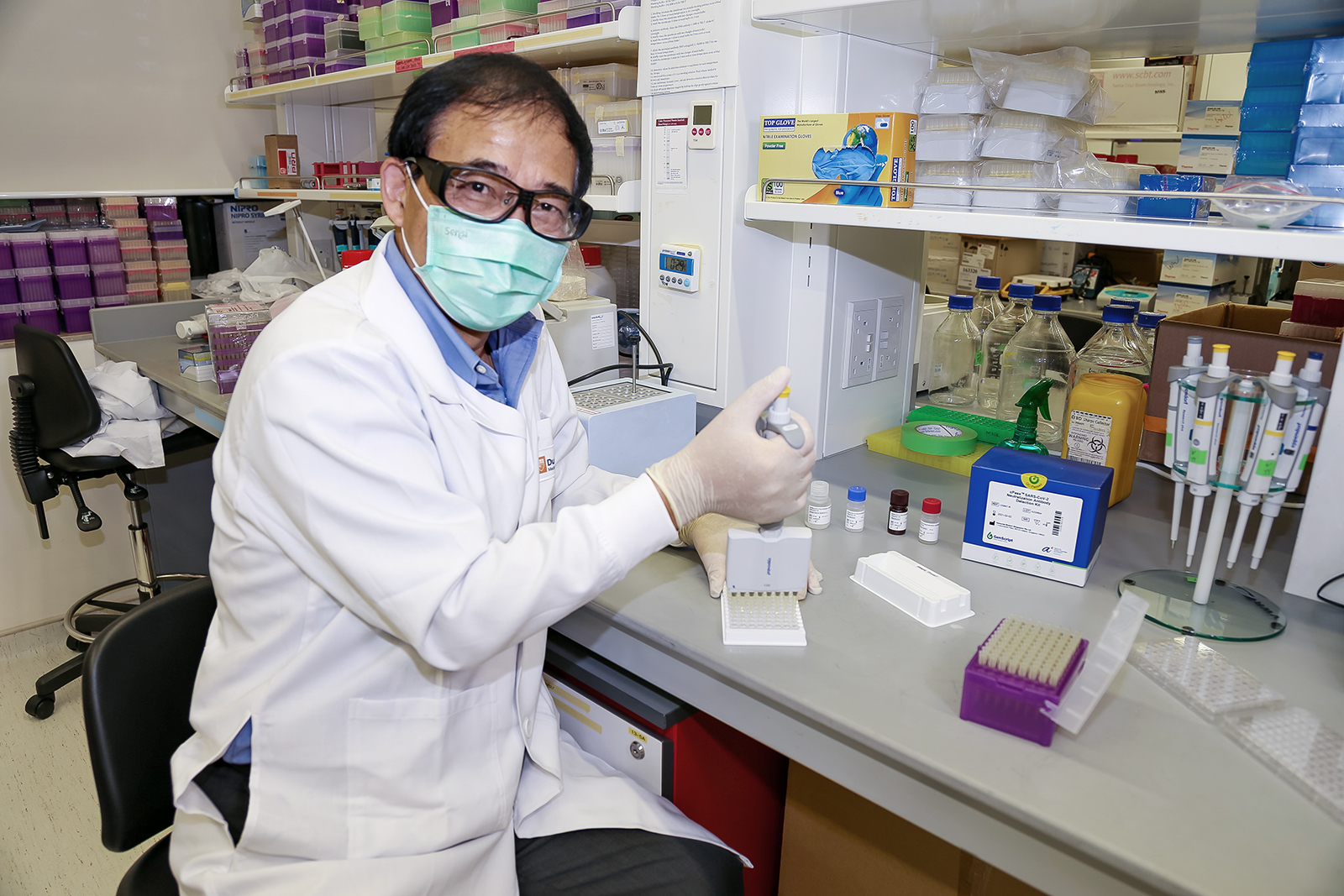cPass™, the novel surrogate virus neutralisation test (sVNT) invented by Duke-NUS and co-developed with A*STAR’s Diagnostics Development Hub and GenScript Biotech, received notice of allowance for its patent application today.
As clinical trials showed, cPass offered a marked improvement over other SARS-CoV-2 test kits. It specifically detects neutralising antibodies which are effective against the virus. It produces reliable results within an hour, where other tests require several days, and needs neither live samples nor the stringent biosafety level 3 measures required for other tests.

WANG LINFA DEMONSTRATES HOW TO USE THE TEST
“Instead of using the whole virus, you just use a piece of protein,” explains Professor Wang Linfa, lead inventor of the test and a professor with the Emerging Infectious Diseases at Duke-NUS. “So, you have the receptor and the key part of the viral spike protein that docks onto the receptor. And you can mimic the live virus neutralisation test in a test tube.”
Where Wang and his team invented cPass, GenScript optimised and refined it into a commercial product, tapping its global network and manufacturing capacity to launch cPass, which would become used across the globe.
“It took only 14 months to receive the notice of allowance, which we view as a strong validation of the innovative sVNT detection methodology,” said Dr Li Zhu, executive director and chief strategy officer at GenScript at the time.
The United States Food and Drug Administration had already granted emergency use authorisation in November 2020.